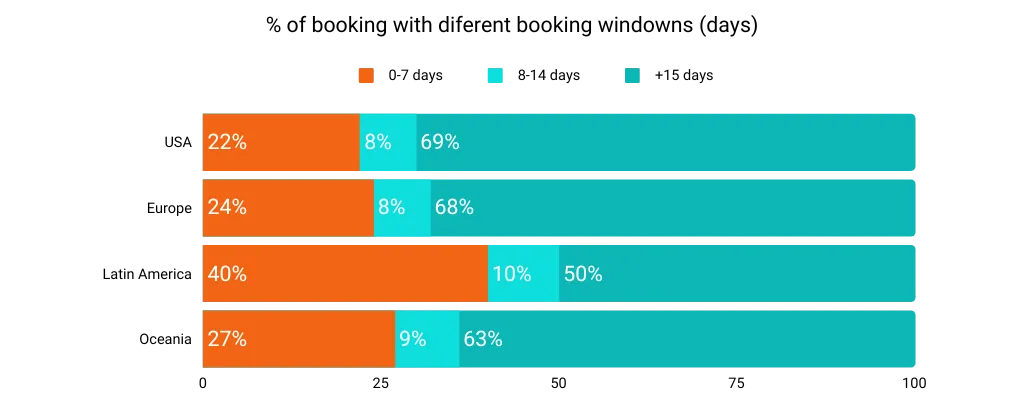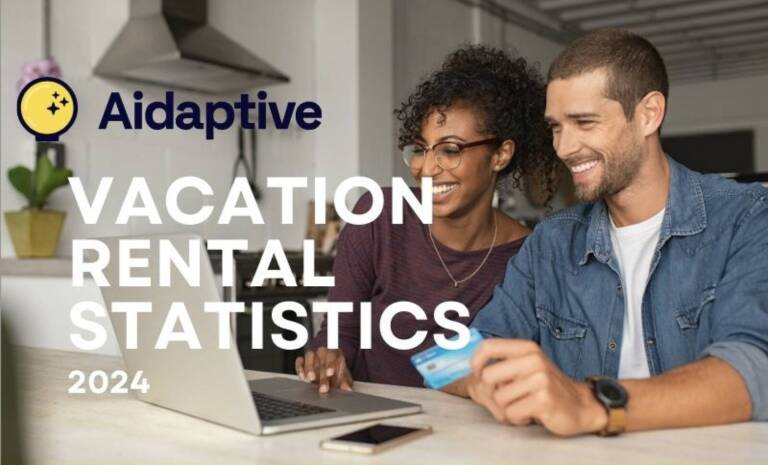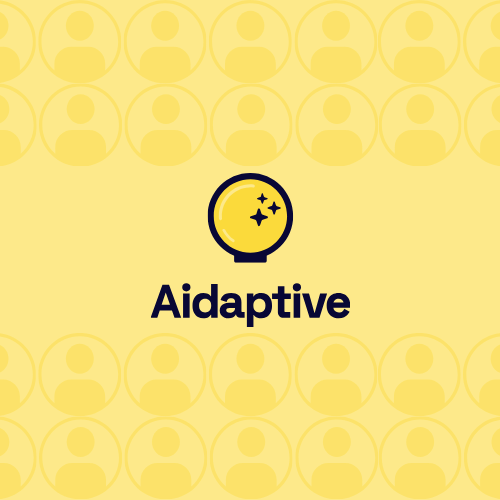Technology has dramatically changed the way we travel. Postcards became smartphones, paper maps were lost to GPS, and telephone reservations have been surpassed by contactless booking. Beyond technology, factors like macroeconomics and pop-culture also play a role. Lately, we’ve seen a rise in event-based travel and a post-pandemic return of business and bleisure travel.
Together, innovations in technology and pent-up travel demand have fueled another shift in recent consumer habits: spontaneity.
Booking on a whim
Spontaneous travel – or a booking made with a shorter-than-average lead time – has been on the rise for years.
In 2022, a notable increase in spontaneous travel became apparent. A survey by Lighthouse revealed bookings made within two weeks of departure accounted for 30% of US reservations.

In 2023, Expedia Group reported a 15% increase in last-minute travel searches. This represented a tangible shift in traveler behavior, indicating a growing preference for spontaneous travel experiences and more agile decision-making.
In 2024, Amex’s Global Travel Trends Report found 78% of respondents shared a desire for spontaneous travel. When it comes to travel distance, 57% of respondents preferred booking a nearby destination for a last-minute trip.
Looking to the future, the data continues to validate spontaneous travel and shortened booking windows as a sustained shift in consumer behavior.
This shift creates a growing segment of travelers with unique booking criteria. As access to artificial intelligence (AI) expands for short term rentals (STRs), property managers can tailor marketing campaigns more effectively than ever before.
AI to win as a STR
Short term rentals have historically been favored for larger reservations or longer durations, both of which representing cohorts that can require increased planning. But shortening lead times presents an opportunity for short term rentals to leverage artificial intelligence with the growing population of spontaneous travelers.
Artificial intelligence equips property managers with the ability to proactively find the guests in their database with an increased likelihood to book on a whim. By offering properties and booking windows that align with the goals of the spontaneous cohort, property managers can see increased occupancy and revenue on listings that may have otherwise been vacant.
Generative AI vs Adaptive AI
Aidaptive has pioneered the development of adaptive AI for the hospitality industry. Generative AI dominates the news for its ability to create content for listings or assist trip-planning. Adaptive AI, however, is the application of machine learning and predictive analytics to adapt a direct booking website or marketing campaign in real-time. It leverages first-party data to show the content that is most relevant to each individual guest.
Let’s look at an example of Aidaptive’s Predictive Hospitality Platform in the context of vacancies:
A property manager has a list of vacant properties for a given week. What options are available to drive occupancy?
- Increase ad-spend
- Reduce price
- Online Travel Agency promotions
- Marketing blasts
Now let’s consider a property manager with the Predictive Hospitality platform at their disposal:
What additional tools do they have to drive occupancy for those specific properties during that specific week?
One option is to utilize Predictive Audiences for targeted marketing campaigns.
- Pull a list of contacts – called Predictive Audiences – that have a high-booking intent for each property during the vacant week
- Send targeted marketing emails to the relevant prospective guests highlighting the property
With Predictive Audiences, property managers can save time and marketing dollars to drive direct bookings and increase overall occupancy.
Seasonality plays a role
Expedia Group’s research found seasonal patterns in booking lead-times. In Q2 2023, North American searches in the 0 to 21-day window increased by more than 15% over Q1. The spontaneous traveler is primarily going to book in the spring and summer months.
With Q2 2024 upon us, it is an optimal time to implement adaptive AI on a direct booking site.
Book a demo
Not sure where to start?
How about visiting Aidaptive’s ROI calculator?
Interested in a DEMO? Contact us to understand how Aidaptive can supplement marketing campaigns with AI to fill last-minute reservations and increase occupancy.
Sign up for The Predictive Hospitality Newsletter.


